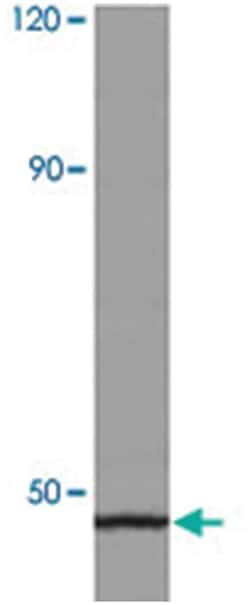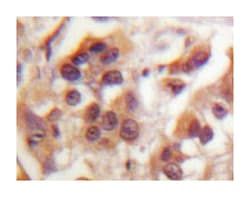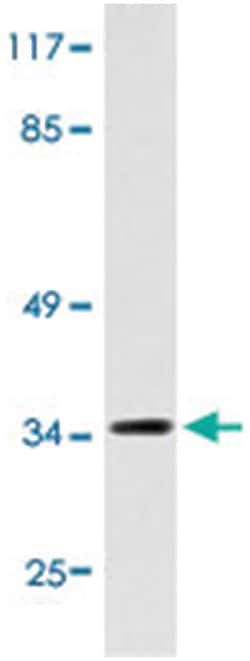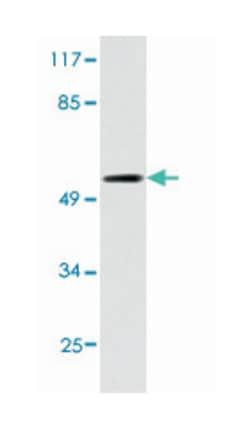VDR Rabbit anti-Human, Polyclonal Antibody, Abnova™
Manufacturer: Abnova Corporation
Select a Size
| Pack Size | SKU | Availability | Price |
|---|---|---|---|
| Each of 1 | 89-126-536-Each-of-1 | In Stock | ₹ 70,488.00 |
89-126-536 - Each of 1
In Stock
Quantity
1
Base Price: ₹ 70,488.00
GST (18%): ₹ 12,687.84
Total Price: ₹ 83,175.84
Antigen
VDR
Classification
Polyclonal
Description
Rabbit polyclonal antibody raised against synthetic peptide of VDR.
Formulation
In 1X PBS, pH 7.2 (0.09% sodium azide)
Gene Alias
NR1I1
Host Species
Rabbit
Purification Method
Antigen affinity purification
Regulatory Status
RUO
Gene ID (Entrez)
7421
Target Species
Human
Form
Liquid
Applications
Immunofluorescence, Immunohistochemistry (PFA fixed), Western Blot
Conjugate
Unconjugated
Dilution
Western Blot (1:500-1:1000) Immunohistochemistry (1:50-1:200) Immunofluorescence (1:50-1:200) The optimal working dilution should be determined by the end user.
Gene
VDR
Gene Symbols
VDR
Immunogen
A synthetic peptide corresponding to VDR.
Quantity
100 μL
Primary or Secondary
Primary
Test Specificity
VDR polyclonal antibody detects endogenous levels of VDR protein.
Content And Storage
Store at 4°C. For long term storage store at -20°C.Aliquot to avoid repeated freezing and thawing.
Description
- This gene encodes the nuclear hormone receptor for vitamin D3
- This receptor also functions as a receptor for the secondary bile acid lithocholic acid
- The receptor belongs to the family of trans-acting transcriptional regulatory factors and shows sequence similarity to the steroid and thyroid hormone receptors
- Downstream targets of this nuclear hormone receptor are principally involved in mineral metabolism though the receptor regulates a variety of other metabolic pathways, such as those involved in the immune response and cancer
- Mutations in this gene are associated with type II vitamin D-resistant rickets
- A single nucleotide polymorphism in the initiation codon results in an alternate translation start site three codons downstream
- Alternative splicing results in multiple transcript variants encoding the same protein
- [provided by RefSeq



